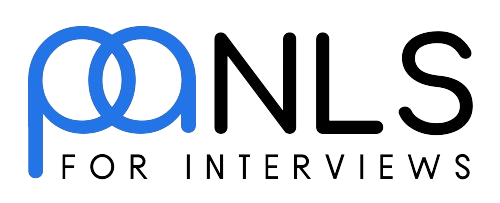Leveraging Lean Recruitment

Companies seek different ways to secure a top candidate while streamlining the process in today’s competitive job market. There are several ways in which we can streamline the recruitment process. However, utilizing lean recruitment could save recruiters or hiring managers time and effort. Lean recruitment was derived from the manufacturing industry. Additionally, lean recruitment process focuses on eliminating waste while improving its efficiency and effectiveness. Not only is it beneficial for HR teams, but it is also beneficial for the candidate. In this blog, we will explore what lean recruitment is and the waste that occurs in the process, and how it revolutionizes the recruitment.
What is Lean Recruitment Process?
Lean recruitment process applies the principles of lean methodologies to the hiring process. This strategy aims to streamline the recruitment process by removing unnecessary steps. Additionally, lean recruitment takes a proactive approach. This allows them to anticipate the company’s future needs and plan solutions before they become a problem or hindrance. Not only does it keep companies from having last-minute hiring rushes and making poor decisions, but it also improves the overall quality of their recruitment and workforce. Overall, lean recruitment focuses on maintaining a pool of highly qualified candidates who are ready to fill available positions. Lean recruitment benefits both the candidate and the HR teams since it reduces delays and errors, leading to high-quality hiring outcomes.
Let’s determine and understand the waste that often happens in the recruitment process. These are the resources or efforts that don’t even add value to the company.
What is the waste in recruitment?
Below are the common types of waste that we can determine in the recruitment process.
Unproductive Sources
Investing in platforms or tools to streamline your recruitment process can be beneficial. Sourcing particular areas during recruitment can allow you to focus on your primary tasks. However, when sourcing platforms or tools fail to find a highly qualified candidate, it is wasteful and ineffective.
Time Inefficiencies
In the recruitment process, a candidate may undergo 3-6 interviews depending on the job role. It is time-consuming for both the HR team and candidates. Additionally, spending a lot of time finding the right candidate can be unproductive and negatively affect the company.
Excessive Processing
Conducting several rounds of interviews, screenings, or evaluations that don’t add value can become a bottleneck. This also contributes to inefficiency, additional time, and effort. With all of this excessive processing, candidates may become dissatisfied and lose interest.
Delays
Slow response times can make candidates feel neglected. They may also have to wait many days or weeks for interview or evaluation results. Furthermore, a lack of communication may create a sense of disrespect and dissatisfaction among the candidates. Delays may also result in the loss of highly competent candidates.
These are the most common wastes that occur during recruitment. This may negatively impact both the candidates and the HR teams, affecting their workforce and productivity. Furthermore, time is vital in the recruitment process, and delays, overprocessing, and unproductive sources are all waste. It is important to be on time and meet deadlines, especially when contacting the candidate. Failure to contact them and provide feedback may cause them to lose interest and seek better opportunities with other companies.
Benefits of Implementing Lean Recruitment
Implementing lean recruitment offers several benefits that can enhance the efficiency, effectiveness, and quality of the recruitment process. Here is how we can benefit from lean recruitment:
- Reduced Time-to-Hire : Lean recruitment focuses on eliminating irrelevant steps that don’t add value. This streamlines the recruitment process and optimizes it. As a result, it reduces the time required to fill the available position. This ensures that a highly qualified candidate is secured before it can even move to another company.
- Improved Candidate Experience : In lean recruitment, streamlining the process and reducing time-consuming processes is essential, leading to a better candidate experience. As a result, they are most likely to accept job offers and appear satisfied with the speedy service and results we provide them.
- Cost Efficiency : Lean recruitment eliminates waste such as unnecessary interviews, ineffective sourcing, lengthy processes, and so on. Minimizing all of this waste also lowers recruitment costs. These recruitment expenses could include advertising, internal resource allocation, and more.
- Enhanced Employer Branding : A streamlined and effective recruitment process reflects positively on the company’s brand. Companies that are quick to respond and have effective recruitment processes can attract highly qualified candidates.
- Alignment with Business Goals : Lean recruitment aligns with the company’s goals and objectives. Focusing on the activities that add value and reducing unnecessary steps can lead to a streamlined recruitment process. Additionally, this recruitment process that applies lean methodologies can contribute to the success and betterment of the company.
These are the benefits that we gain from employing lean recruitment. It not only streamlines the process but also improves the overall quality of recruitment. Lean recruitment can result in a more efficient process, lower costs, and higher-quality hires. Furthermore, this increases the productivity and workforce of the HR departments while also providing a great candidate experience.
Conclusion
Overall, using lean recruitment may save recruiters or hiring managers time and effort. Lean recruitment started in the manufacturing industry. This method aims to streamline the recruitment process by eliminating waste, minimizing inefficiencies, and aligning recruitment activities with business objectives. Focusing on activities with added value and optimizing the process can transform the hiring process. This boosts the efficiency and workforce of HR departments while also giving a positive candidate experience.
If you are looking for a platform that can assist you with your hiring process, Panls is the right choice! Panls is an interview-as-a-service platform that interviews on your behalf. You don’t have to worry about chasing the project deadlines and conducting interviews, as Panls makes it easy for you! Join Panls now!
